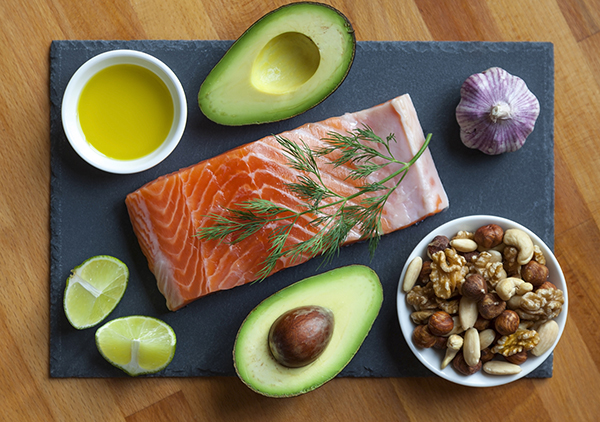




More and more people are being diagnosed with high blood pressure. The changing guidelines for diagnosing hypertension certainly play a role, but the twin epidemics of obesity and diabetes – collectively known as diabesity – and their associated metabolic disturbances (metabolic syndrome) are the core reason.
If you have high blood pressure, you’ve probably been told to go on a low sodium diet. But did you know that salt is only the middle man? And that only a small percentage of the population has sodium sensitive hypertension? Hyperinsulinism and insulin resistance associated with diabesity upregulates sympathetic nervous system activity and causes sodium retention, causing high blood pressure. The antidote is a low carb diet. This effectively reduces insulin secretion, abating abnormal sodium retention.
That’s why the first few days on a low carb diet are mainly water loss. The diuretic effect of this therapeutic diet can be as powerful as prescription HCTZ or dyazide – the “water pill” often recommended to those with hypertension.
Nitric oxide (NO) produced in the arteries is a signaling molecule that promotes vasodilation (relaxes the arteries). Beneficial for lowering blood pressure, NO production is enhanced by exercise, sunlight, antioxidants and polyphenols, omega 3 fatty acids, and vegetables that are moderate to high in nitrates. These include arugula, beets, cabbage, carrots, celeriac, celery, chervil, dill, endive, fennel, kohlrabi, leek, lettuce, parsley, radish, spinach, turnip and watercress.
Factors that decrease beneficial NO production? Insulin resistance, oxidative stress and inflammation.
Aged garlic extract is shown to be beneficial in lowering blood pressure along with improving arterial stiffness and inflammation.
Losing as little as five to seven percent of body weight can help lower blood pressure. Certainly, this will be achieved with a low carb diet. And because you’ll be eating plenty of the vegetables listed above, and incorporating lower glycemic fruits like avocado, tomatoes, berries, kiwi, apricots and pears, you’ll be getting plenty of beneficial potassium as well.
Last, but never least, is exercise. Cardiovascular conditioning is critical for maintaining normal blood pressure levels. But if your blood pressure is very high, please talk to your doctor first before taking on any type of vigorous exercise regimen.
Though we think of declining estrogen as the hallmark of menopause, it's actually common for…

Up to 12 percent of Americans have ulcers at some point in life. Peptic ulcers…
Gallbladder disease is a modern illness. An estimated 20 million Americans have gallbladder disease. The…

There’s more to GI health than whether or not to take an acid-blocker. All too…

In the latest attempt to remove “stigma” from medical terminology, liver specialists have come up…

Q: My husband’s high sensitivity C-reactive protein (hs-CRP) is 1.62 and his homocysteine is 13.1. If…

Banish the Bloat: Leyla Weighs In with Tips and Insights

Our virtual voicemail is open 24/7, so there's no need to wait to submit your questions for Dr. Hoffman. Leave a message, and you may hear your question featured on the Intelligent Medicine radio program!